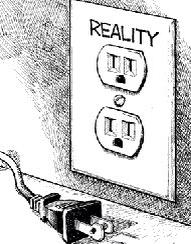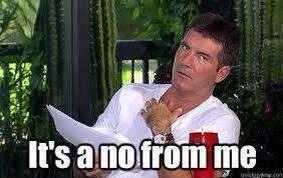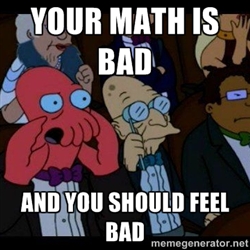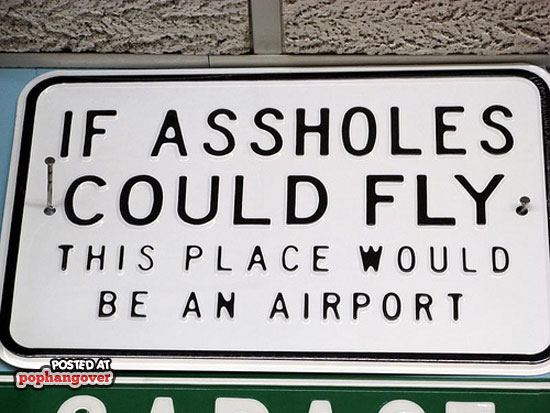“Give me your stories,” they said.
“We’ll give you exposure,” they said.
What I say is crap on that.
Who else works for exposure?
Tradespeople don’t. Doctors don’t.
Plumbers sure as hell don’t work on the premise of free labour if you show your pipes to all your friends, do they?
Doctors getting you to share your scars all over the Internet in exchange for free surgery?
I don’t think so.
Unpaid markets benefit one side of the equation, and only one side.
The publisher.
I hear all the time about the wonderful gift of exposure, but let’s face it, unless you have some name authors in the anthology, the only exposure you’re likely to get is to the other writers and their friends and family. There are a million for-the-love (FTL) markets out there, with more springing up every single day. These days, anyone can publish through Kindle Direct Publishing (KDP) and Createspace (CS). You don’t even need to register as a business, although many of these fly-by-night outfits do so to try and make themselves appear more legitimate.
Yeah, many of these LLCs and sole-operators are decent people who really believe in what they are trying to do. Sure, they are giving upcoming and emerging authors a chance to get their work out there.
Sure, the world of publishing is hard to get a foot in.
Sure, FTL markets seem the way to start off. A way to get your work out and to build up a fan base. A way to validate all your hard work, and to be able to say “Hey look! I’m a published author.”
Well, guess what? Anyone can do that.
I’m not saying that all FTL markets are shite. Just that most of the ones I’ve seen are shite.
And you know why they’re shite?
Because anyone can create them, trained and experienced or totally new to the publishing world.
ANYONE can start up a Blogspot or WordPress or Wix site (all free, of course) and call themselves a publisher.
And they don’t have to risk a goddamn cent to do so.
Let’s break them down, economically, shall we?
 Website/blog = no cost
Website/blog = no cost
Facebook page/Twitter account = no cost
Microsoft paint/online graphic design tool (to create ugly logo/banner) = no cost
Authors willing to work for exposure or royalty shares = no cost
No editing/editing by founder (no experience or training) = no cost
No proofing/proofing by founder (no experience or training) = no cost
Cover design by founder or their sibling/partner (no training or experience) = no cost
Upload badly-designed Word document interior to KDP/Smashwords/CS = no cost
Spam all the social media book groups = no cost
TOTAL = NOTHING/NO COST/ZILCH
Risk = nothing
See the problem here?
Well, that’s not all, folks.
You might say that it’s worth it for the exposure writers get.
WRONG!
Let’s look at what a writer DOES get from this.
All their hard work gets no reward except being published, most likely in ebook form, and maybe in print.
That’s good, right?
Nope.

All of a sudden that story is no longer an original. It’s only valid for reprint markets.
Many of the better anthologies (paid ones) don’t want reprints, and even if they do, they pay MUCH less for them.
So… the publisher gets free stuff, and the writer gets exposed to about twenty or thirty people.
So, what else is in it for the publisher? Surely there’s more, isn’t there?
Yep. There’s more.
Remember what writers are like. We all love to see our shit in print.
We love to have a few copies of anything we appear in on our shelves.
Boasting material.
Bragging rights.
“Yeah… that book there? I’m IN that.” Struts over to the shelves and pulls it out.
So, the usual crap deal with FTL and royalty-only anthologies is that the writer gets a free e-book copy of the volume.
“Wow!” you say. “That’s cool.”
Well, the truth is, no it’s not. They cost the publisher nothing to send out. Another layer of no-cost for the publisher.
Another layer of false legitimacy for the publisher.
Print copies is where it’s really at. Writers want hardcopies. And they usually buy them.
From the publisher.
The same publisher who isn’t paying the writers.
So, the writers are now, instead of getting paid, actually PAYING the publisher to get their stories published.
Likely at least two or three copies.
 I could do the maths, but I hate numbers, so suffice it to say that 20-30 writers, each buying at least two books, means the publisher has now sold 40-60 books. At likely $15-$20 each.
I could do the maths, but I hate numbers, so suffice it to say that 20-30 writers, each buying at least two books, means the publisher has now sold 40-60 books. At likely $15-$20 each.
They may have made five bucks a book, so there’s $200-$300 right there.
From the WRITERS.
The people who should have been paid, but instead are paying.
If you say “well, the publisher is giving each writer one print book,” then that’s something, but I betcha that most, if not all, of the writers will still go on and buy two or three books on top of that. Presents for family and friends.
So… let’s look at this so far.
Writers = out of pocket around $50-60 to have their story published.
Publishers = average profit of $250 AND the beginning of a company. If they do this often enough, they have a bit of an income stream.
I’ve seen publishers like this put out 100 anthos a year. They get authors to move in and act as editors, putting together the antho and having their name on the cover as editor.
All for free, of course, because God forbid anyone but the publisher making a cent out of the whole thing.
In the end, the writer gets little to no promotion, somewhat out of pocket, and a few badly-edited books with crappy cover art.
I think I’d rather die of exposure than be subjected to this type of exposure.
To me, it seems way too much like vanity publishing.
Writers PAYING to be published.
I guess that’s because it’s exactly what it is, thinly disguised as some crap where the publisher says “You should be doing it for the love of writing.”
Yeah, fuck that.
What about the love of building a reputation instead of tearing it down in crappy anthologies.
What about that?
Next post, I take a look at royalty-only stuff, which is just as bad.
For now, check out my mate Alan Baxter’s take on that shit:
http://www.alanbaxteronline.com/royalty-anthologies-writer-exploitation/




